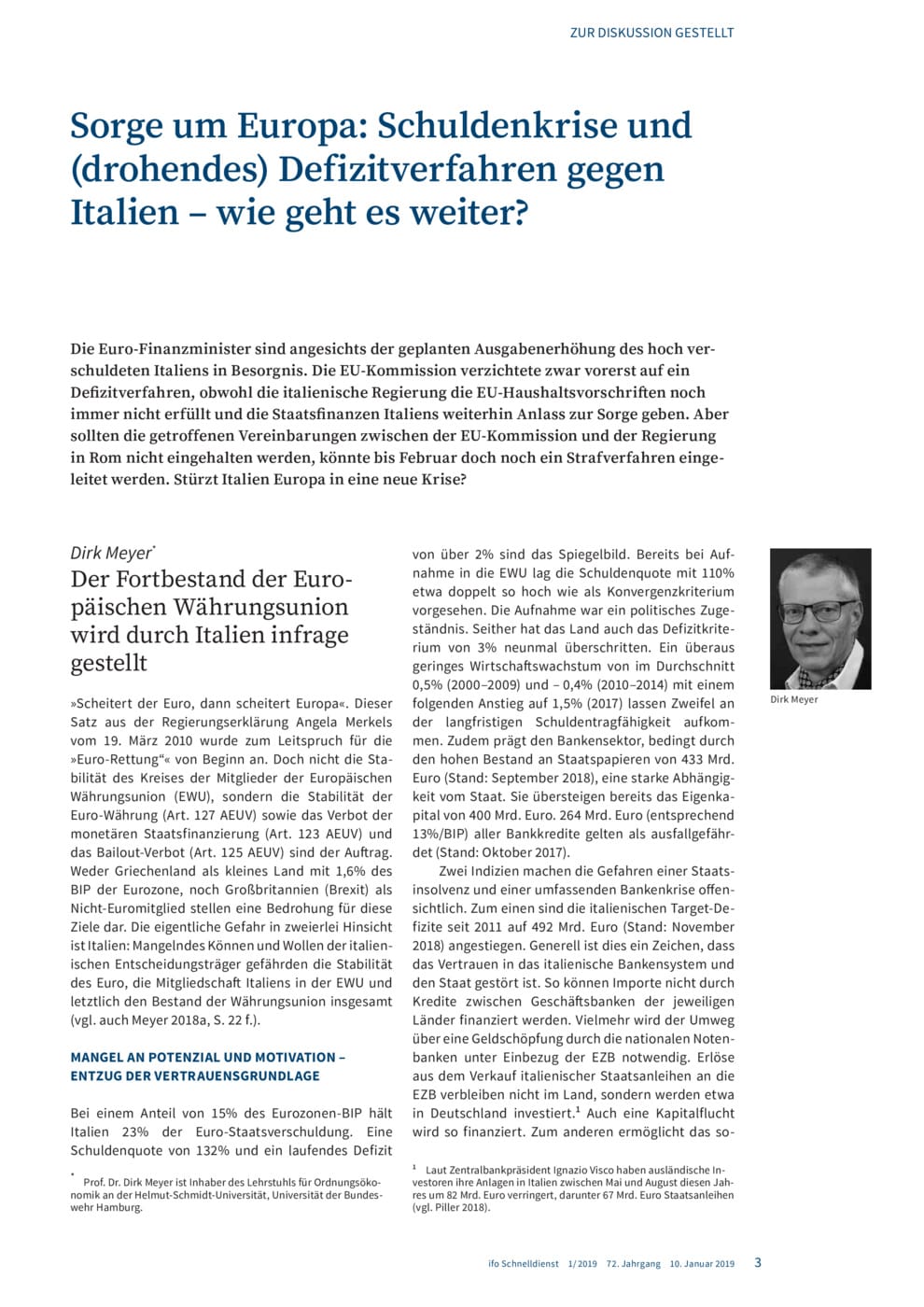Concern about Europe: Debt Crisis and (Impending) Deficit Procedure against Italy - What Next?
ifo Institut, München, 2019
ifo Schnelldienst, 2019, 72, Nr. 01, 03-22

The euro finance ministers are concerned about the planned increase in spending by Italy, which is heavily indebted. For the time being, the EU Commission has put a deficit procedure on hold, even although the Italian government still has not complied with EU budget regulations. Is Italy plunging Europe into a fresh crisis? Dirk Meyer, University of the Federal Armed Forces Hamburg, sees the continued existence of the European Monetary Union called into question by Italy. The lack of ability and will on the part of Italian decision-makers is jeopardising the stability of the euro, Italy's membership of EMU and, ultimately, the continued existence of the monetary union as a whole. According to Berthold Busch and Jürgen Matthes, Institut der deutschen Wirtschaft, Cologne, the Italian government's course is damaging. Although it has now made limited corrections to its budget plans, the European Union should not accept minimal concessions. Ansgar Belke, University of Duisburg-Essen, believes that it is not worthwhile for Italy to leave the Eurozone. On the contrary, the mere discussion of this possibility, regardless of Italy's budgetary situation, is "playing with fire". Massimo Bordignon and Angelo Baglioni, Catholic University of Milan, assume that Italy will neither leave the euro nor the European Union. The economic and political costs of an "Italexit" are clear to the politicians currently in power, and are sufficiently high to prevent them from seeking a withdrawal. What is worrying, however, is that a successful political campaign in Italy and in other countries is reinforcing Euroscepticism. Christian Kastrop and Dominic Ponattu, Bertelsmann Stiftung, use the "case of Italy" as an opportunity to focus on "European public goods. These particularly include the reform of fiscal rules, which must be future-oriented. Bodo Herzog and Marlene Ferencz, ESB Business School, underline that Italy's draft budget violates agreements with the Commission and the other euro member states; and thus poses a threat to monetary union.